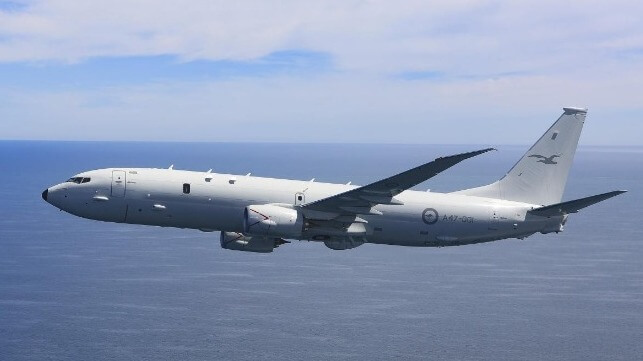Chinese Fighter Dumps Chaff in Front of RAAF Maritime Patrol Plane

A Chinese fighter jet dispensed chaff in front of a Royal Australian Air Force (RAAF) maritime patrol aircraft over the South China Sea last month, sending metallic foil strips into the plane's engines, Australia's department of defense has confirmed. The run-in was a rare example of physical contact in the high-stakes environment of an aerial intercept, where miscalculation can quickly result in damage (or conflict).
On Sunday, Australia's Department of Defence issued a statement confirming that a "dangerous" intercept had occurred over the South China Sea on May 26. An Australian P-8 Poseidon was carrying out a surveillance patrol when it was intercepted by a Chinese Shenyang J-16 fighter jet, a derivative of the Soviet-era Su-27 Flanker. The fighter carried out a dangerous maneuver, the department asserted.
Defence Minister Richard Marles provided more details in a later TV interview. He added that the J-16 had first held position alongside the P-8 and fired off flares. It then accelerated, cut across ahead of the P-8's nose, and released "a bundle of chaff which contained small pieces of aluminum, some of which were ingested into the engine of the P-8 aircraft."

that matters most
Get the latest maritime news delivered to your inbox daily.
The crew were unharmed and the plane returned safely to Clark Airbase in the Philippines. Flight-tracking data suggest that the airframe was sidelined from operational duties until June 3. The extent of any damage was not disclosed.
In-flight mishaps during an intercept can have serious consequences. In 2001, a U.S. Navy EP-3 surveillance aircraft collided with a PLA Navy J-8 fighter about 70 miles off the coast of Hainan Island. The fighter went down and its pilot was never found. The EP-3 made an emergency landing at Hainan, and the 24 American crewmembers were detained for 10 days while high-level diplomatic discussions were completed. Both sides denied responsibility for the collision.
